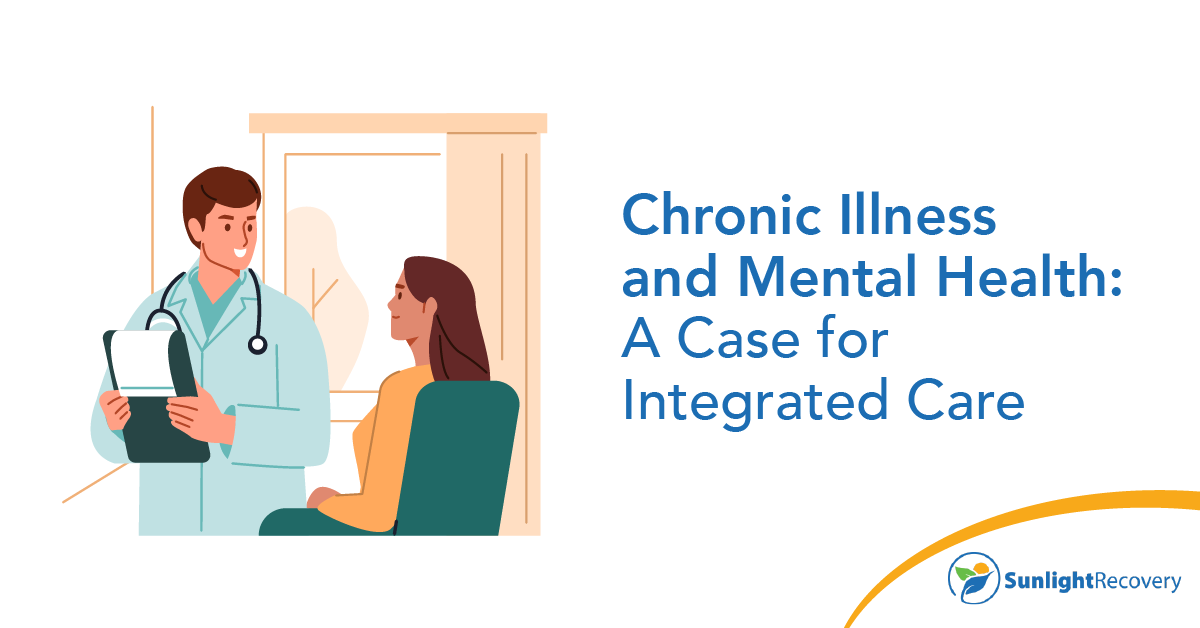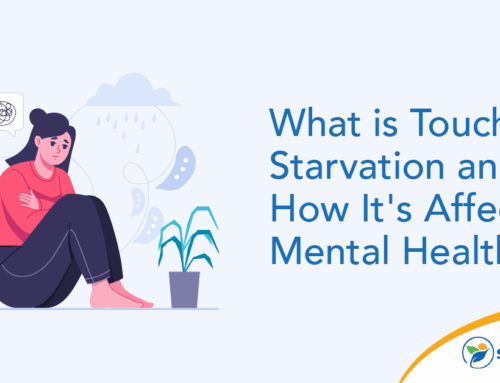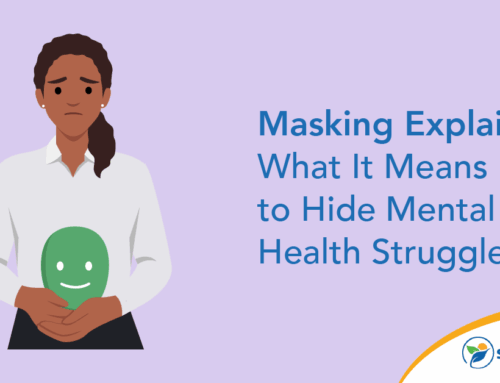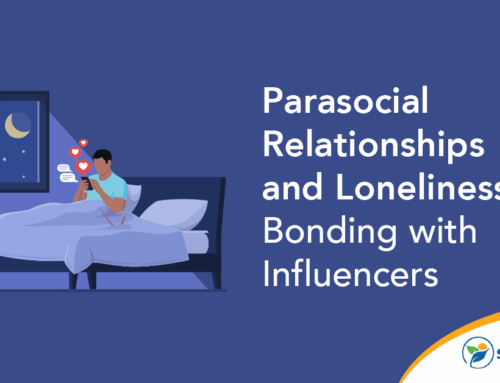Chronic illnesses are health conditions that require ongoing medical care and limit a person’s activities to some degree for 1 year or more. Common chronic illnesses include autoimmune disorders, heart disease, diabetes, and cancer. These conditions obviously impact the physical body, but they also often have deep emotional, mental, and psychological impacts.
The link between chronic illness and mental health can be complex. Living with long-term health challenges can increase the risk of depression, anxiety, and other mental health concerns. At the same time, mental health conditions themselves can be chronic and lead to physical health concerns. This link makes it challenging — and critical — to manage both mental and physical health when dealing with chronic concerns.
Understanding the Overlap Between Chronic Illness and Mental Health
Living with a chronic illness often means ongoing stress, lifestyle changes, financial strain, and uncertainty about the future. These factors can take a toll on a person’s emotional well-being, increasing the risk of developing mental health disorders.
Among the general population, the rate of affective disorders, such as depression or anxiety, is between 4% and 8%. However, the rate of these disorders among populations of people with cancer is close to 30%, and among individuals with chronic illnesses like diabetes or rheumatoid arthritis, it’s 25%.
When a person is managing both physical and mental health symptoms, it can also create a feedback loop. Pain or fatigue may lead to depression or anxiety. Those mental health symptoms can make it harder to follow treatment plans or maintain daily routines, causing poorer physical outcomes.
Can Mental Health Conditions Be Considered Chronic Illnesses?
Yes, mental health conditions are often considered chronic in nature, especially when the symptoms persist long-term and require treatment. As with physical conditions, chronic mental health disorders may involve periods of stability and relapse. Individuals with these conditions may benefit from long-term management via therapy, medication or lifestyle changes.
Is Depression a Chronic Illness?
Depression can be a chronic illness when symptoms last for months or years, especially in the case of major depressive disorder. However, depression can also be situational. It might be triggered by a specific life event or short-term stressor; in such cases, it could resolve with time or targeted treatment. Chronic forms of depression typically require ongoing care to manage symptoms and prevent recurrence.
Is Anxiety a Chronic Illness?
Anxiety becomes a chronic illness when symptoms are persistent, interfere with daily life and don’t resolve without treatment. Generalized anxiety disorder and social anxiety disorder are examples of potential chronic anxiety conditions. In contrast, short-term anxiety in response to a stressful event, such as divorce or a job loss, is typically not a chronic illness.
Is Addiction a Chronic Illness?
Addiction is widely recognized as a chronic condition. It often involves cycles of relapse and recovery and may require long-term strategies to manage. While some people may stop using substances after a single treatment experience, others need ongoing support. Addiction can also lead to changes in brain function that make it more difficult to quit without help, reinforcing its classification as a chronic illness.
How Chronic Physical Illness Contributes to Depression and Anxiety
Chronic physical illnesses can wear down a person’s emotional reserves over time, cause severe stress in certain moments, and lead to other life situations that negatively impact mental health. Here are some ways long-term physical health challenges contribute to issues like depression and anxiety:
- Persistent pain or fatigue. Ongoing discomfort can limit daily activity and reduce quality of life, leading to feelings of hopelessness or frustration.
- Loss of independence. Relying on others for care or being unable to perform everyday tasks can contribute to low self-esteem or sadness.
- Financial strain. Medical bills, missed work or disability can cause stress, worry and anxiety about the future.
- Isolation. Chronic illness can make it harder to socialize or stay connected, increasing feelings of loneliness or depression.
- Uncertainty about the future. Not knowing how a condition will progress or what limitations may come can heighten fear and anxiety.
- Lifestyle restrictions. Having to give up hobbies, travel or favorite foods can lead to grief, frustration or a sense of loss.
The Case for Integrated Care: Treating Mind and Body Together
When physical and mental health are treated separately, important connections are often missed. Symptoms may be linked only to physical issues, underlying causes overlooked or treatment plans left incomplete. That’s where integrated care makes a difference.
Treating chronic illness and mental health together allows providers to understand the holistic picture of a person’s condition and path to wellness. It leads to more accurate diagnoses, better communication between care teams and personalized support for patients. Integrated models also help reduce stigma by recognizing that mental and physical health are both essential to overall well-being.
For people with chronic conditions, this approach can improve quality of life and long-term outcomes.
Barriers to Integrated Treatment in Traditional Health Care
While integrated care is ideal, it’s not always available in traditional settings like general hospitals or doctors’ offices. Common barriers to integrated care include:
- Fragmented care systems. Mental health and physical health providers often work in silos without coordination.
- Insurance limitations. Coverage can vary for mental and physical health services, making holistic access more difficult.
- Lack of training. Some providers may not feel equipped to address mental and emotional symptoms.
- Time constraints. Busy clinical environments can limit in-depth conversations about mental health.
- Stigma. Patients may be reluctant to share mental health concerns in physical health settings.
Moving Toward Holistic, Patient-Centered Care
If you’re struggling with mental health issues or a substance use disorder, we can help. At Sunlight Recovery, we work to treat the entire person with a holistic approach that considers physical and mental health needs. We know that people on a journey that involves chronic illness and mental health conditions need an integrated approach that treats the mind and body. Contact us to find out more about treatment options and what next steps might be right for you.







